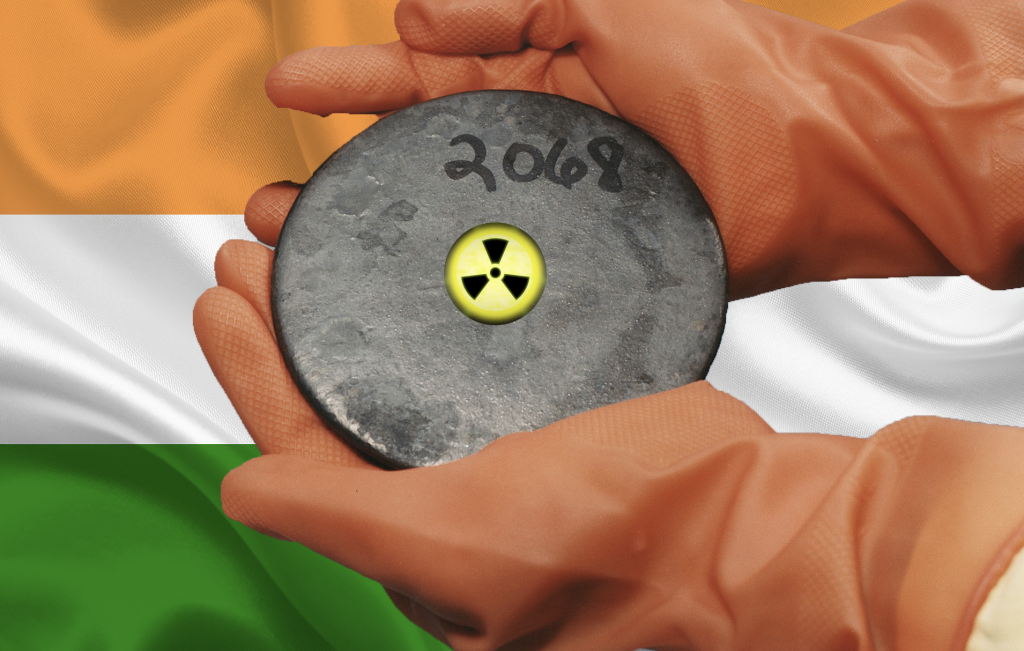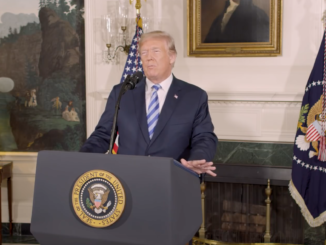
On June 4, 2021, Indian police arrested seven people and confiscated 6.4 kg of uranium that the accused were trying to sell in the black market. In a similar episode on May 5, 2021, Indian police arrested two men who were trying to sell 7 kg of uranium. These two incidents in quick succession raise serious concern about India’s nuclear security credentials, and more worryingly the possibility of a thriving nuclear black market within India that could be used by some state or non-state entities to acquire material that once enriched could be used for making nuclear bombs.
Why It Matters? Natural uranium cannot be used for making bombs, but if used along with conventional explosives by non-state actors, it could cause significant radioactivity and danger to human life. A series of incidents also suggest that there is significant supply and demand, and the customers are willing to pay as much as 3 crore Indian rupees for 1 kg of uranium. There is also a likelihood that uranium in large quantities may have already been smuggled out from India’s Jharkhand mines and sold in the black market, which if bought by an aspiring nuclear weapons state could be used in making bombs.
Interestingly, the group of accused smugglers in the recent incident were carrying uranium in leather pouches with ‘Made in USA’ seals, but it is more likely that the material may have been procured from a uranium reprocessing facility in Jaduguda where Uranium Corporation of India Limited (UCIL) operates a uranium reprocessing plant.
Reacting to the recent incident, the spokesperson of Pakistan’s Ministry of Foreign Affairs has termed it “a matter of deep concern” as it highlights India’s “lax controls, poor regulatory and enforcement mechanisms.” India is a party to IAEA’s Convention on Physical Protection on Nuclear Material (CPPNM), which makes it obligatory to ensure the security of all nuclear facilities and material. The UN Security Council Resolution 1540 passed in 2004 under Chapter VII of the UN charter also makes it mandatory for all the member states to strengthen their security measures and ensure that equipment and material that could be used in weapons of mass destruction (WMD) does not fall into the hands of the non-state actors. The two recent incidents of nuclear smuggling violate both of these legal obligations exposing serious deficiencies in India’s nuclear security architecture.
Under the UNSCR 1540, all states have an obligation to draft laws and institutionalize implementation mechanism that could deal with nuclear theft related incidents; however, the recent arrests have been made on the charges of concealing and disposing of stolen property, which again is in contrast to India’s obligation under the UNSCR 1540.
Nuclear security incidents involving theft and smuggling of nuclear material are reported to IAEA’s Incident and Trafficking Database (ITDB), which are shared with member states to draw requisite lessons and improve their national nuclear security architectures. It is not clear whether India had earlier shared such information with the ITDB or not, since there has been no major concern by the international community on the increasing frequency of nuclear theft happening in India.
India’s Nuclear Security Credentials. Nuclear security remains a national responsibility, but all states are accountable for their action or inaction, which could potentially threaten international security. The series of nuclear proliferation incidents happening in a country that was granted exemption from the guidelines of the Nuclear Suppliers Group (NSG), despite being a non-signatory to the Nuclear Nonproliferation Treaty (NPT) indicate that exceptions made for commercial and political dividends while ignoring the ground realities and merit could eventually unravel the global nuclear security regime.
The US and several supporters of India’s permanent membership of the NSG continue to plead India’s case by citing its “impeccable” nonproliferation credentials and side stepping the fact that the 48 member NSG came into existence after India demonstrated how peaceful nuclear technology could be misused for developing nuclear weapons and testing a device in 1974.
As a consequence, India remained ineligible for nuclear related trade for almost three decades and was allowed to enter into civil nuclear cooperation in 2008 as part of the India-US strategic partnership. The main argument given in support of the nuclear deal was that India is a responsible country and must be brought into the mainstream nuclear nonproliferation regime.
During the Nuclear Security Summit (NSS) meetings, which was a leadership level initiative launched by President Obama to raise greater awareness on nuclear security issues, India continued to flaunt its nuclear security credentials and joined most commitments made at the leadership level. More significantly, it voluntarily adopted the initiative on strengthening nuclear security implementation, later formalized as the IAEA document and labelled as INFCIRC/ 869. By joining this initiative India committed to support IAEA’s “fundamental principles” of nuclear security, which includes INFCIRC 225/ Rev.5 and provides guidelines on physical protection of nuclear material and facilities.
As part of the commitments made at the NSS, India also agreed to join ‘gift baskets’ on counter nuclear smuggling and declared that it would be “holding the bar high on nuclear security.” At the 2014 Summit meeting, Prime Minister Modi also boasted that “India would continue to reflect its nuclear obligations to the international community through its national actions.” In the national progress report submitted as part of the NSS process, PM Modi underlined the “continued priority the country attached to nuclear security at home.”
The incidents of nuclear smuggling have exposed that the political commitments made at the leadership level were not followed through and implemented at the national level. The deficiencies in India’s nuclear security architecture have also been documented in the 2020 Nuclear Security Index published by the Nuclear Threat Initiative (NTI), which ranked India 20 out of the 22 states for its efforts to secure nuclear material. India’s ranking is below Pakistan, and the only countries that are graded lower than India are Iran and North Korea.
Interestingly, the same NTI report ranked Pakistan as the most improved country in the theft ranking for countries that use weapons useable nuclear materials. These improvements, as per the report, were a result of strengthened security and control measures and adherence to global security norms. Other measures that helped Pakistan’s ranking were the adoption of on-site physical protection regulations, new cybersecurity regulations and taking protective measures to improve insider threat.
Conclusion. The two incidents of nuclear proliferation in a short period of one month highlight the dangers posed by nuclear black markets that continue to thrive because of existing demand and willing suppliers. If these trends are not discouraged by holding states accountable for failing to meet their national and international obligations, it could lead to the unravelling of the entire international nuclear security architecture.
![]()




Be the first to comment